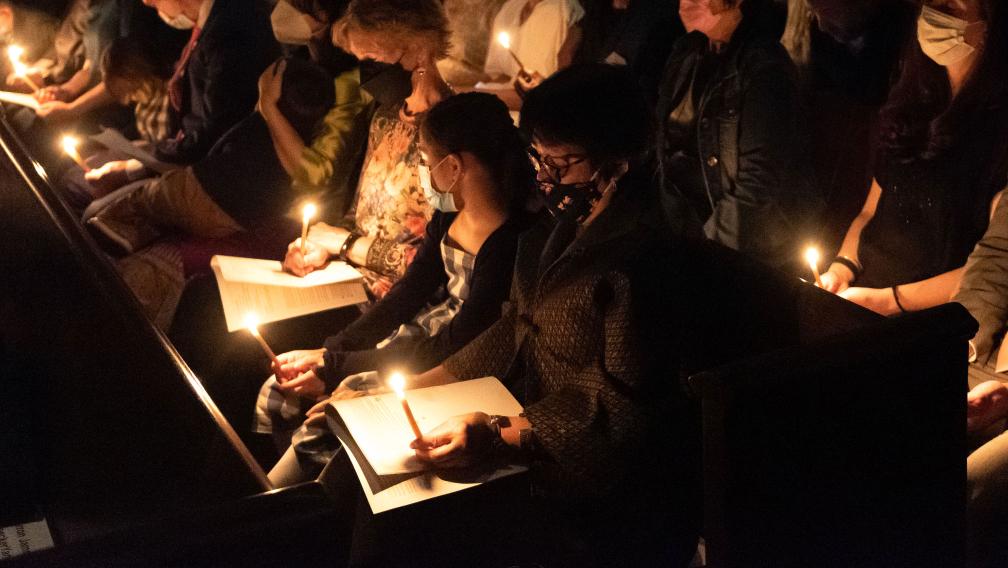John 21:15–19
When they had finished breakfast, Jesus said to Simon Peter, “Simon son of John, do you love me more than these?” He said to him, “Yes, Lord; you know that I love you.” Jesus said to him, “Feed my lambs.” A second time he said to him, “Simon son of John, do you love me?” He said to him, “Yes, Lord; you know that I love you.” Jesus said to him, “Tend my sheep.” He said to him the third time, “Simon son of John, do you love me?” Peter felt hurt because he said to him the third time, “Do you love me?” And he said to him, “Lord, you know everything; you know that I love you.” Jesus said to him, “Feed my sheep. Very truly, I tell you, when you were younger, you used to fasten your own belt and to go wherever you wished. But when you grow old, you will stretch out your hands, and someone else will fasten a belt around you and take you where you do not wish to go.” (He said this to indicate the kind of death by which he would glorify God.) After this he said to him, “Follow me.”
This Sunday’s Gospel story is an almost cinematic narrative of Jesus’ third appearance to his friends after his crucifixion. The scene is one of the most vividly described in all of the Gospels, down to the number of fish that were caught the second time around: 153 “large fish” to be exact. Can you picture it? The disciples, after three heady years with Jesus in his revolutionary ministry, barely escaping with their lives, only to leave Jesus nailed to a cross and head back to their ordinary lives as fishermen, and evidently, not very good ones at that.
It’s a wonder they could even make themselves get out in that boat with the dejection, guilt, and shame they must have been feeling. Surprisingly, they aren’t punished for their betrayal and fear — for being human; for being blind to the deceit of transactional faith. They are forgiven. And then, they are given a second chance.
Their friend encourages them to try again. Their friend makes them breakfast. Their friend asks them simply to take care of one another. And they do. And Saul does. They had a choice. They were broken; they had hit bottom. But they embraced the light of a second chance.
—Kathryn Carroll
THEOLOGY
SALT Project explores the Gospel passage as “John’s epilogue.”
SOCIAL JUSTICE
Reflecting on brokenness and the Japanese art of kintsugi, Makoto Fujimura asks, “What if we simply welcomed [new people to church] and said, ‘Thank you so much for bringing your fragment, because we need your fragment. We want to simply behold, because all of us are broken here. Your fragment kind of fits into this place where God is doing his kintsugi with us. You matter because your shapes, your sharp corners, your edges are exactly what God will need to create something new, something grand.’”
VISUAL ART
As a philosophy, kintsugi treats breakage and repair as part of the history of an object rather than something to disguise.
MUSIC
A soothing old favorite, “Feed My Lambs.”
POETRY
In Dilruba Ahmed’s poem “Phase One,” errors — from unforgiveable betrayal to the banal — are human and can be forgiven.
Get the Five Ways In Your Inbox
Sign up to receive reflections and updates from the Faith Formation & Education team.
Coming Up
Join the Trinity community in exploring the history and significance of stained glass, and the messages found within, Sundays at 10am in Discovery. This week, Dr. Susan Ward discusses the stained glass at our own beloved Trinity Church.
